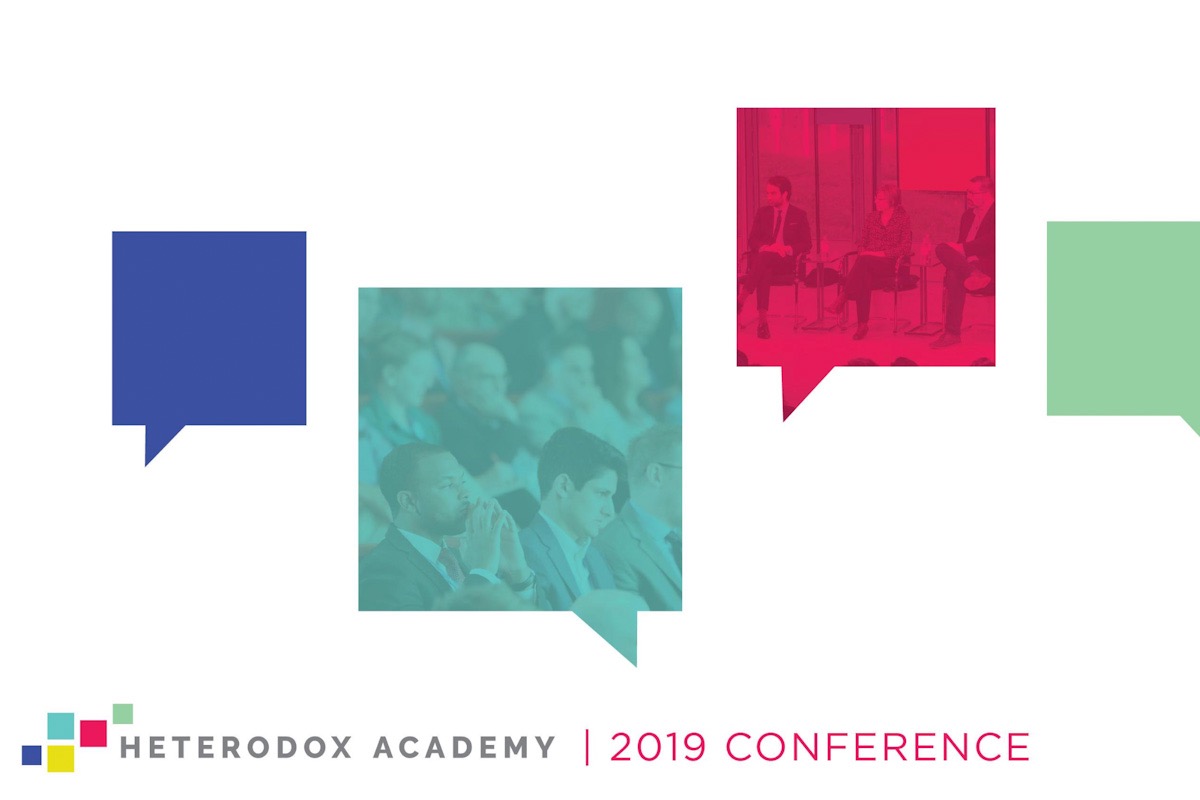Top Stories
Science Reformers Reduce Political Bias in Psychology
Intellectual diversity and science reform should be two well-coordinated efforts. Each strengthens the other.

Psychology has a bigtime political diversity problem. Psychological scientists are overwhelmingly left in their politics, and I co-edited an entire book with over 30 contributors (nearly all of whom are left in their personal politics) about ways in which that influences and distorts their “scientific” claims and conclusions. For example, claims that advance leftist narratives, such as “the inaccuracy of stereotypes” have been advanced without any supporting data for decades. Many other phenomena that seem to advance left narratives about the power and pervasiveness of oppression – such as stereotype threat, implicit bias, and microaggressions – have proven to be on weak or dubious empirical grounds.
Can anything be done about this?
Before addressing that, consider this: Psychology is in “crisis” because of a long parade of failed replications of some of psychology’s most cherished findings, especially in my home discipline of social psychology. But scientific psychology (and many other disciplines) is plagued by more than failed replications. Widely accepted conclusions have gone wrong for a myriad of reasons, including suboptimal methods and statistics, insufficient transparency, insufficient skepticism about dramatic findings, misinterpreted results, confirmation biases, overclaiming, and leaping to conclusions in order to advocate for social and legal changes.
In response to this crisis, a vigorous science reform movement has emerged within psychology. That movement is spearheaded by the Society for the Improvement of Psychological Science (SIPS, launched in 2016), and has a laser-like focus on improve psychology’s methods and practices.
It arose just after another organization, Heterodox Academy, appeared on the scene specifically targeting academia’s political diversity problem (the lack of ideological diversity, and the concomitant distortions to scholarship plague many of the social sciences and humanities).
Intellectual diversity and science reform should be two well-coordinated efforts. Each strengthens the other. In my view, the two efforts are synergistic, but estranged. There is little overlap in the membership of the two organizations. This is unfortunate because SIPS implicitly embodies intellectual diversity in everything it does and because one of HxA’s primary concerns is improving the quality of scholarship in the academy by combating the distorting effects of intellectual and political monocultures.

Why the estrangement? I don’t know for sure, but people may erroneously equate intellectual diversity with political diversity, which is not a concern at SIPS. This error probably occurs because many members of HxA, myself included, have been quite vocal in criticizing academia for a slew of dysfunctions that stem from it being dominated by those on the political left. I am pretty sure such criticism of leftwing psychologists makes plenty of leftwing psychologists both uncomfortable and suspicious of the motives of Heterodox Academy members.
However valid that may be, intellectual diversity is about more than politics. Writing about theories and research in astronomy in Nature: Physics, Harvard Professor Abraham Loeb argued “Uniformity of opinions is sterile; the co-existence of multiple ideas cultivates competition and progress. Of course, it is difficult to know in advance which exploratory path will bear fruit…”
SIPS and science reform is its own form of intellectual diversity writ large. They can be viewed as Psychology’s Constitutional Convention –changing the rules of how we do psychological science. Science reform also has a family resemblance to political controversies, because, both heterodox scholars and science reformers have had to face hostility from their opponents, including insults, denunciations, and condemnations. Like Queen Victoria, faculty who have achieved eminence under the old rules are rarely amused when a bunch of mostly younger reformers come along and challenge the practices that produced their eminence. SIPS embodies a different aspect of intellectual diversity but to much the same extent as does HxA.
Despite their estrangement, however, their shared intellectual DNA is on full display at each SIPS conference. SIPS seems to be addressing many of the problems of central concern to HxA without even trying. For example, one common manifestation of the field’s extreme left skew is that Republicans and conservatives are routinely the butt of jokes even at professional conferences. Another is that vulnerable early career researchers who are publicly nonleft in their politics are subject to insults and harassment. Yet another is that data based conclusions that contest leftist narratives are often the target of intense pushback and hostility in public venues.
I have attended SIPS meetings in 2017 and 2018. This included multiple talks, events, workshops, working groups, and social events. There were probably about 500 people attending across the two events. How many jokes did I hear poking fun at Trump, Republicans, or conservatives? Zero.
How many studies were presented holding up conservatives, Republicans, or Trump supporters to scorn by casting them as stupid, ignorant, bigoted, or authoritarian? Zero.
How much hostility did I receive when I mentioned the accuracy of gender stereotypes or researchers ignoring evidence contesting left narratives, and the like? None.
I have finely-tuned political bias antennae. They did not get set off at all. Ever.

SIPS has shown that my field can function without such biases. In fact, if one accepts that SIPS is the vanguard of the solutions to what ails psychology, it shows that NOT having such biases is associated with a high functioning scientific field. Does this occur because removing such biases improves the quality of the field? Or because raising the quality of the field limits such biases? My guess is that it’s both.
How does SIPS do this? I do not know for sure, but here are my guesses.
- One of the SIPS leaders, Dr. Alexa Tullett kicked off the conference with a heartfelt call for respect, civility, and inclusivity. “Inclusivity” certainly meant demographic inclusivity, but I think many of us also heard it as referring to status and intellectual idea inclusivity as well. This set a tone of openness to heterodox views, whether they stemmed from methods, theory, politics, or demographic identities.
- Psychology’s professional organizations are usually run like medieval fiefdoms, with “great scientists” in their castles on mountaintops showering their wisdom and largesse on the masses. In contrast, SIPS is run like a campground. Flat, everyone is in this together, perceived contributions are based on actual contributions, not status. This creates a willingness to respectfully engage with almost any view.
- SIPS prioritizes getting the science right. Reality, as far as I can tell, does not systematically vindicate any one ideological worldview (with apologies to Stephen Colbert’s joke about reality having a liberal bias — oh, right, he is a comedian). So differences between folks at SIPS tend to be smaller and more hinged to logic and evidence than … almost anywhere else, including other venues for psychological science.
- At SIPS, there is full throated embrace of the fact that there is high uncertainty in everything psychological scientists do. Once that is acknowledged, many seemingly contrarian claims can’t be easily dismissed without compelling evidence, which is often lacking. This also contributes to a willingness to engage with all sorts of ideas.
This means that, in sharp contrast to much of the rest of psychology, at SIPS, just because something has been published, even a lot, the finding or conclusion is not presumed to actually be true. Social scientific consensuses have been known to be wrong. Whether they are right depends on the quality of the underlying evidence. There are so many cases now where “lots of evidence” proved unreliable, that SIPS folks generally reject the “We are scientists and our word is TRUTH,” attitude that has gotten psychology into so much trouble. Put positively, SIPS members approach psychology with a much larger than usual dose of professional humility.
I doubt that SIPS will solve all of psychology’s intellectual diversity problems. Psychology’s decades-long leftward drift is on a trajectory to essentially eliminate all conservatives from the field. For example, in the 2012 Presidential election, von Hippel and Buss’s recent survey (reported inthis book) found that social psychologists voted for Obama over Romney by 301 to 4. A healthy political diversity in the field is not likely to return anytime soon. When a field is this lopsided, it means that only questions of interest to liberals will even be addressed, because there is, effectively, no one but liberals in the field. SIPS’ emphasis on methods will not solve this problem.
However, if the science reform effort in general, and SIPS in particular solves a great many of the other problems – such as political discrimination, cherrypicking evidence to advance narratives, leaping to conclusions to justify social interventions, etc. it will have done more to improve psychology than many of its members perhaps even realize. Warts and all, I will sign up for that right now.






